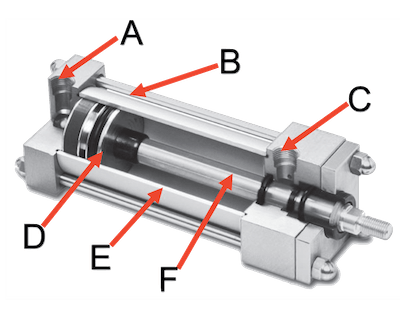Mechanical engineering is a field known for its challenging and intricate nature, requiring a deep understanding of various complex concepts. Within this broad discipline, certain subjects stand out for their level of difficulty and complexity. From thermodynamics to fluid mechanics, the 11 most difficult mechanical engineering subjects push students to their limits and demand exceptional problem-solving skills. These subjects require strong mathematical prowess and a creative approach to tackling real-world engineering problems. In this article, we will delve into these challenging topics, exploring the reasons behind their difficulty and providing insights on how students can navigate them successfully. Join us as we unravel the mysteries of the most formidable subjects in mechanical engineering and discover what it takes to conquer them confidently.
What is Mechanical engineering?
Mechanical engineering is a discipline that focuses on the design, analysis, and manufacturing of mechanical systems and processes. The course typically covers various subjects such as thermodynamics, fluid mechanics, materials science, and mechanical design. It also includes practical applications such as robotics, automotive engineering, and aerospace technology. Mechanical engineering subjects can be quite challenging due to the complex mathematical and scientific principles involved and the need for practical problem-solving skills. Additionally, the course often requires students to work with intricate machinery and equipment, adding to its difficulty.

1. Fluid Dynamics
Why is it one of the toughest mechanical engineering subjects?
- The complexity of fluid dynamics and its applications in mechanical engineering.
- The challenges students face in understanding fluid behavior and the mathematics involved.
Fluid dynamics is a highly complex field crucial to various mechanical engineering subjects. The study of fluid behavior and its applications in mechanical engineering involves analyzing the flow of liquids and gases in various systems. From designing efficient turbine blades to understanding the behavior of fluids in pipes and channels, fluid dynamics is integral to developing mechanical engineering subjects. However, students often face challenges grasping the intricate mathematics involved in fluid dynamics, as it requires a deep understanding of differential equations, vector calculus, and complex numerical analysis. The complexities of fluid dynamics demand a strong foundation in mathematical concepts, which can pose a significant obstacle for students pursuing mechanical engineering subjects.
In mechanical engineering subjects, the applications of fluid dynamics are vast and diverse. Understanding fluid behavior is essential for designing aerodynamic vehicles, optimizing heat exchangers, and developing efficient hydraulic systems. The intricate interplay of forces and fluid properties presents many challenges for mechanical engineering students as they strive to comprehend the complex nature of fluid dynamics. Moreover, the mathematical principles governing fluid flow, such as Navier-Stokes equations and Bernoulli’s principle, often prove challenging for students, requiring a deep level of mathematical and analytical proficiency. As a result, mastering fluid dynamics becomes a critical aspect of mechanical engineering education, necessitating a comprehensive understanding of the theoretical and practical applications in various engineering disciplines.
2. Thermodynamics
Why is it one of the toughest mechanical engineering subjects?
- The fundamental concepts of thermodynamics and their relevance to mechanical engineering.
- The complexities of heat transfer, energy conversion, and the laws of thermodynamics.
Thermodynamics is a fundamental concept in mechanical engineering subjects, encompassing the study of energy conversion and heat transfer. The relevance of thermodynamics to mechanical engineering lies in its application to various systems, including engines, power plants, and HVAC systems. The complexities of heat transfer involve understanding the mechanisms by which heat is transferred within a system, such as conduction, convection, and radiation. This knowledge is essential for designing efficient heat exchangers, thermal insulation, and other components in mechanical engineering subjects. Additionally, energy conversion is a critical aspect of thermodynamics, as it involves transforming different forms of energy, such as mechanical, electrical, and thermal, within engineering systems to achieve desired outcomes.
The laws of thermodynamics play a pivotal role in mechanical engineering subjects, providing foundational principles that govern energy and heat transfer. These laws dictate energy behavior and establish constraints on the efficiency of energy conversion processes. The first law of thermodynamics, also known as the law of conservation of energy, states that energy cannot be created or destroyed, only be transformed from one form to another. The second law of thermodynamics introduces the concept of entropy, which quantifies the amount of energy unavailable for doing work. Understanding and applying these laws is crucial in designing and analyzing mechanical engineering systems, ensuring that energy is effectively utilized and heat transfer processes are optimized.
3. Machine Design
Why is it one of the toughest mechanical engineering subjects?
- The importance of machine design in mechanical engineering.
- The challenges of applying theoretical knowledge to practical design problems.
Machine design is crucial in mechanical engineering, as it involves creating and developing machines and mechanical systems that cater to specific purposes. The significance of machine design lies in its ability to ensure the machines’ efficient functionality, reliability, and safety. It integrates mechanical engineering subjects such as mechanics, materials science, and thermodynamics to create innovative and practical solutions for real-world challenges. Moreover, machine design is essential for optimizing performance and minimizing the cost of production, making it an indispensable aspect of mechanical engineering.
However, applying theoretical knowledge to practical design problems can present several challenges in mechanical engineering. One of the main hurdles is the complexity of real-world applications, which often require innovative and unconventional solutions. Additionally, the dynamic nature of practical design problems demands a deep understanding of mechanical engineering subjects and their practical implications. Engineers must also consider material properties, manufacturing processes, and environmental impacts, making applying theoretical knowledge a multi-faceted challenge in machine design within mechanical engineering.
4. Control Systems
Why is it one of the toughest mechanical engineering subjects?
- The role of control systems in regulating mechanical processes.
- The intricacies of feedback control, stability, and system analysis.
Control systems are crucial in regulating mechanical processes within mechanical engineering subjects. These systems are designed to manage, command, direct, or regulate the behavior of other devices or systems, ensuring they operate in a desired manner. In the context of mechanical processes, control systems are essential for maintaining the stability and efficiency of various mechanical systems, such as engines, turbines, and robotic arms. They achieve this by continuously monitoring the system’s behavior and making real-time adjustments to ensure it operates within specified parameters. This ability to regulate and optimize mechanical processes is fundamental to mechanical engineering, as it allows for designing and implementing complex machinery and systems that can perform tasks with precision and reliability.
Feedback control is a key aspect of control systems that maintains stability and regulates mechanical processes. By continuously monitoring the output of a system and comparing it to the desired reference value, feedback control systems can make necessary adjustments to ensure the system remains stable and operates as intended. Stability is crucial in control systems, ensuring the system does not exhibit erratic or unpredictable behavior. System analysis is another important facet of control systems, involving studying a system’s behavior and characteristics to understand its performance and make informed decisions about its control. These intricacies of feedback control, stability, and system analysis are essential components of control systems in mechanical engineering subjects, enabling engineers to design and optimize mechanical processes with precision and reliability.
5. Materials Science
Why is it one of the toughest mechanical engineering subjects?
- The significance of materials science in mechanical engineering.
- The complexities of material properties, behavior, and selection for engineering applications.
Materials science plays a pivotal role in mechanical engineering subjects, as it enables engineers to understand and manipulate the properties of materials to design and develop innovative mechanical systems. The significance of materials science in mechanical engineering lies in its ability to provide insights into the behavior of materials under different conditions, allowing engineers to select the most suitable materials for specific applications. Understanding the complex relationship between material properties and engineering applications is essential for ensuring mechanical systems’ reliability, efficiency, and safety, making materials science an indispensable aspect of mechanical engineering subjects.
The complexities of material properties, behavior, and selection for engineering applications require mechanical engineers to understand materials science deeply. This involves considering mechanical properties, thermal behavior, corrosion resistance, and material microstructure to ensure the chosen materials meet the mechanical systems’ performance requirements. Furthermore, the selection of materials involves trade-offs between cost, weight, strength, and other properties, adding further complexity to the decision-making process. Therefore, a thorough understanding of materials science is essential for mechanical engineers to overcome these complexities and make informed decisions about material selection for various engineering applications.
6. Mechanics of Materials
Why is it one of the toughest mechanical engineering subjects?
- Understanding the behavior of materials under stress and strain.
- The challenges in analyzing and predicting the mechanical response of materials.
Understanding the behavior of materials under stress and strain is crucial in the field of mechanical engineering subjects. This knowledge allows engineers to design and create structures and components that can withstand various loads and environmental conditions. Mechanical engineers can make informed decisions about material selection, design, and manufacturing processes by studying how materials deform and fail under different stress levels. This understanding is essential for ensuring the safety, reliability, and performance of mechanical systems and components, making it a fundamental aspect of mechanical engineering subjects.
However, analyzing and predicting the mechanical response of materials presents several challenges for engineers. One major challenge is the complexity of material behavior, which can vary depending on factors such as temperature, loading rate, and material microstructure. Additionally, materials often exhibit non-linear behavior under stress and strain, making it difficult to model their mechanical response accurately. Another challenge is the presence of defects and imperfections in real-world materials, which can significantly affect their mechanical properties. Overcoming these challenges requires advanced experimental techniques, computational tools, and a deep understanding of material science and mechanics, highlighting the multidisciplinary nature of mechanical engineering subjects.
7. Robotics and Automation
Why is it one of the toughest mechanical engineering subjects?
- Robotics and automation in mechanical engineering.
- The complexities of kinematics, dynamics, and control of robotic systems.
The growing importance of robotics and automation in mechanical engineering subjects cannot be understated. These technologies revolutionize how mechanical engineers approach design, manufacturing, and maintenance processes. Robotics and automation enhance efficiency, accuracy, and safety in various industrial applications, making them indispensable tools for modern mechanical engineers. As the demand for automation continues to rise, mechanical engineering subjects emphasize robotics, ensuring students are well-equipped to navigate the evolving engineering landscape.
When discussing the complexities of kinematics, dynamics, and control of robotic systems in mechanical engineering subjects, it’s evident that these areas are crucial for understanding and implementing advanced robotics technology. Kinematics deals with the study of motion and geometry, which is essential for designing robotic arms and mechanisms that can perform precise movements. Dynamics focuses on the forces and torques involved in robotic motion, which is crucial for ensuring stability and efficiency in operation. Control systems are integral for governing the behavior of robotic systems, enabling engineers to program and regulate their movements with precision. A comprehensive understanding of these complexities is essential for mechanical engineering students to excel in robotics and automation.
8. Heat Transfer
Why is it one of the toughest mechanical engineering subjects?
- The principles of heat transfer and their applications in mechanical systems.
- The challenges in analyzing conduction, convection, and radiation heat transfer.
Heat transfer is a fundamental concept in mechanical engineering, playing a crucial role in designing and operating various mechanical systems. The principles of heat transfer—conduction, convection, and radiation—are essential for understanding how heat energy is transferred from one system to another. Conduction involves the transfer of heat through a solid material, such as metal, where the energy is passed from one molecule to another. Convection, on the other hand, occurs in fluids and involves the transfer of heat through the movement of the fluid itself. Radiation, the third principle, involves the transfer of heat through electromagnetic waves, such as infrared radiation. These principles of heat transfer are applied in mechanical systems to optimize energy efficiency, improve performance, and ensure the safety and reliability of various engineering applications.
Analyzing conduction, convection, and radiation heat transfer in mechanical systems presents several challenges for engineers. Understanding the complex interactions between these mechanisms and their impact on system performance requires a deep understanding of thermodynamics and fluid dynamics, both key components of mechanical engineering subjects. Additionally, accurately predicting and controlling heat transfer in real-world applications can be challenging due to varying material properties, turbulent flow conditions, and complex geometries. Overcoming these challenges requires sophisticated modeling and simulation techniques, advanced measurement tools, and a multidisciplinary approach that integrates principles from mechanical engineering, physics, and materials science to ensure mechanical systems’ efficient and reliable operation.
9. Machine Dynamics
Why is it one of the toughest mechanical engineering subjects?
- The study of forces and motion in mechanical systems.
- The complexities of analyzing and predicting the dynamic behavior of machines.
Machine dynamics is a crucial aspect of mechanical engineering, studying forces and motion within mechanical systems. This field delves into understanding the intricate interactions between various components of a machine and how these interactions influence the overall dynamic behavior of the system. Analyzing and predicting the dynamic behavior of machines involves grappling with complexities such as non-linearities, vibration, and the impact of external forces. Engineers must consider factors like friction, inertia, and the response of materials under different loads, making the study of machine dynamics an essential part of a comprehensive mechanical engineering curriculum.
The complexities of analyzing and predicting the dynamic behavior of machines are further compounded by the diverse range of mechanical engineering subjects that are interrelated with machine dynamics. These include fluid mechanics, thermodynamics, and materials science, all of which directly impact the performance and behavior of machines. Moreover, the dynamic behavior of machines is affected by external factors such as environmental conditions, wear and tear, and operational loads, adding complexity to the analysis. As a result, a deep understanding of machine dynamics is essential for mechanical engineers to design, optimize, and maintain efficient and reliable mechanical systems.
10. Engineering Mathematics
Why is it one of the toughest mechanical engineering subjects?
- The importance of mathematics in solving engineering problems.
- The challenges students face in mastering advanced mathematical concepts relevant to mechanical engineering.
Mathematics is crucial in solving engineering problems, particularly in mechanical engineering subjects. Applying mathematical principles and techniques is essential for analyzing and designing mechanical systems and understanding the underlying physical laws that govern their behavior. Mathematics provides the tools to address complex engineering challenges, from calculating forces and stresses in structures to modeling fluid flow and heat transfer. Without a solid foundation in mathematics, engineers may struggle to accurately predict and optimize the performance of mechanical systems, ultimately hindering their ability to innovate and solve real-world problems.
One of the challenges that students often face in mastering advanced mathematical concepts relevant to mechanical engineering is the abstract nature of these concepts. Topics such as differential equations, linear algebra, and advanced calculus can be particularly daunting for students, as they require a deep understanding of mathematical theory and its application to mechanical engineering problems. Additionally, the interdisciplinary nature of mechanical engineering subjects can make it challenging for students to grasp the connections between mathematical concepts and their practical implications in engineering design and analysis. Overcoming these challenges requires rigorous theoretical study, hands-on problem-solving experience, and guidance from experienced educators who can demonstrate the relevance of mathematical concepts to mechanical engineering.
11. Manufacturing Processes
Why is it one of the toughest mechanical engineering subjects?
- Understanding various manufacturing methods and processes.
- The complexities of material removal, forming, and joining processes in manufacturing.
Understanding various manufacturing methods and processes is crucial in the field of mechanical engineering subjects. It allows engineers to select the most suitable manufacturing method for a specific application, considering cost, time, and quality factors. Material removal, forming, and joining processes are fundamental in manufacturing and significantly shape the final product. Material removal processes such as machining and grinding involve the cutting or abrasion of material to achieve the desired shape and dimensions while forming processes like casting and forging reshape the material without removing any significant amount. Joining processes like welding and adhesive bonding are essential for assembling components into a final product. Each process has complexities and requires a deep understanding to ensure the successful production of high-quality mechanical engineering subjects.
The complexities of material removal, forming, and joining processes in manufacturing demand a comprehensive understanding of mechanical engineering subjects. Material removal involves intricate calculations and considerations for tool wear, cutting forces, and surface finish. Forming processes require a deep understanding of material behavior under pressure, temperature, and strain rates. Joining processes involve considerations for material compatibility, joint strength, and potential distortions. Engineers must have a strong grasp of these complexities to make informed decisions and optimize the manufacturing processes for efficiency and quality. Therefore, a thorough understanding of various manufacturing methods and processes is essential for mechanical engineering subjects to produce innovative and reliable products.
Recap: 11 of the Most Difficult Mechanical Engineering Subjects
Mastering the 11 difficult mechanical engineering subjects can be daunting, as they present various challenges that can test students’ perseverance. From complex thermodynamics to intricate fluid mechanics, these subjects demand a deep understanding and application of theoretical concepts. However, students must persevere and seek support when facing these challenges, as conquering these subjects is essential for success in mechanical engineering. With determination and assistance, students can overcome these obstacles and pave the way for a rewarding career in mechanical engineering.











